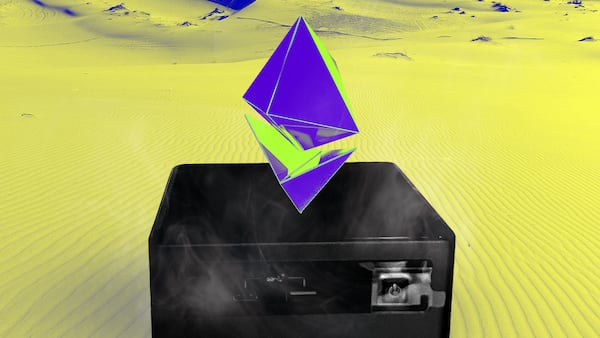- Lido's LDO token is up 7% since Jump Crypto's president announced his departure Monday.
- Some have blamed Jump for LDO's underwhelming performance over the past two years.
When Jump Crypto president Kanav Kariya announced on X he would be leaving the high-speed trading firm, it prompted the usual flurry of replies — industry luminaries wishing him luck in his next endeavour — and some that were not so usual.
At least two dozen people rejoiced: A great weight had been lifted from Lido’s LDO token, they said on social media.
Indeed, the token has been on a tear this week, rising more than 7% since Kariya’s announcement on Monday.
It might not have been a coincidence.
During the “crypto winter” set off by the collapse of Terra in May 2022, Jump Crypto sold more than 5 million LDO tokens, according to data from Arkham Intelligence. In September 2022, the firm had about 6 million LDO. As of Tuesday, it had a little more than 500,000, worth about $1.4 million.
That two-year fire sale cemented Jump as a villain to LDO’s retail investors who came to view the firm’s constant selling as an albatross depressing the token’s price.
It is not clear whether Kariya was personally involved in Jump’s sale of LDO. He didn’t immediately respond to a request for comment.
“It’s a mix of a joke and somewhat true,” Will Sheehan, founder of crypto data firm Parsec Finance, said of the tweets celebrating Kariya’s departure. “Jump was selling Lido through 2022 and 2023, and sometimes in crypto a [crypto Twitter] joke becomes an actual negative narrative.”
Lido is the largest protocol in decentralised finance, with about $33 billion in user deposits, according to DefiLlama data.
The protocol simplifies the process of “staking” Ether, or locking it up for an annualised yield.
Lido also issues derivative tokens that track the value of deposited Ether. Those tokens are widely accepted in Ethereum’s DeFi ecosystem and let users dodge the opportunity cost that comes with vanilla staking.
It was among the most profitable protocols tracked by DefiLlama, generating $100 million in fees over the past 30 days — second only to Ethereum itself.
Lido’s token
LDO is the protocol’s governance token, and it gives holders the right to propose and vote on changes to the Lido protocol.
But its performance has been underwhelming. Uniswap’s UNI token has a market capitalization of $7 billion, even though the protocol controls less than one-fifth the crypto deposited in Lido.
MakerDAO’s MKR token has a market capitalization of $2.2 billion, while Aave’s AAVE token is worth $1.3 billion. Both are far smaller than Lido.
Some have chosen to pin the blame on Jump.
But LDO’s rally in the wake of Kariya’s departure can’t just be chalked up to a change in Jump’s top ranks, Sheehan cautioned.
“It’s coinciding with some relative strength from old-school DeFi coins,” he noted.
In the past 24 hours, UNI, MKR, and AAVE are up 4.4%, 10%, and 9.4%, respectively. Sheehan said he wasn’t sure what sparked the rally in DeFi coins, but proffered that it was a reaction to the memecoin fervour that took over the industry this year.
“It feels reactionary to memes and general alt bleeding,” he said, “because these are real businesses that are much more countercyclical.”
Contact the author at aleks@dlnews.com.







